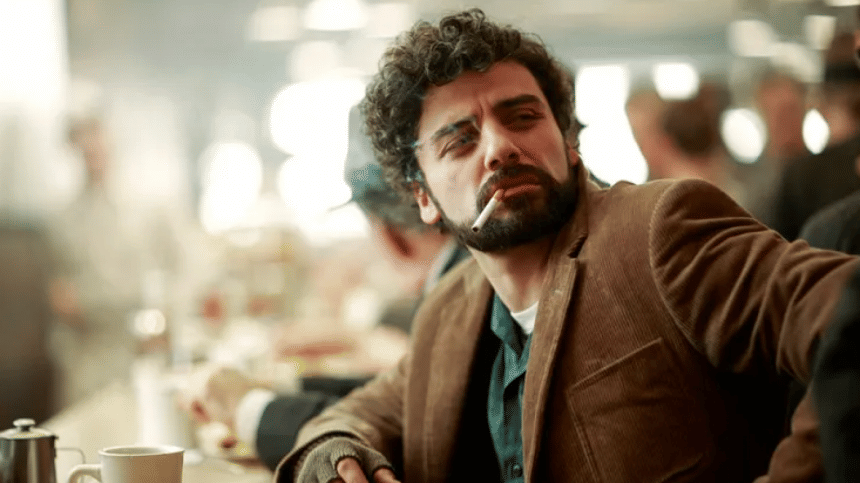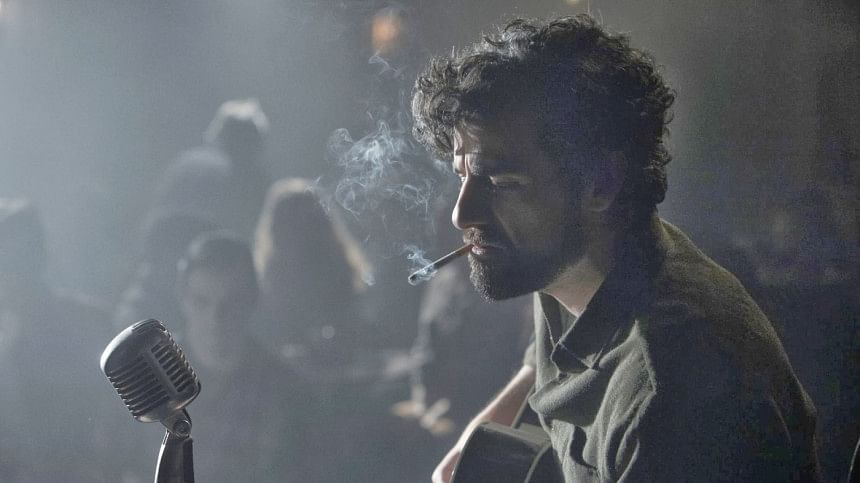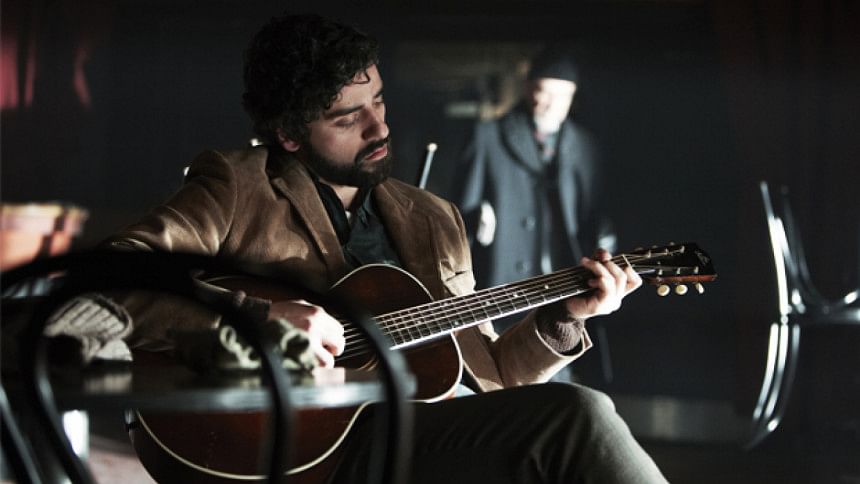10 years of ‘Inside Llewyn Davis’: Like there is no tomorrow

I was 18.
The power station over the Brahmaputra failed sometime that evening, so the lights went out. It was so hot and humid, my nerves gave up on feeling it after a point. After being with my friends by the river till half past ten, coming back home, I felt so empty that a certain rage filled me. I hated myself for going along with laughter that was so banal in those moments it made my lips ache just to keep them apart. I hated the city. Everything seemed without substance.
That was the night in June when I came to know Llewyn.
There's a folk singer in Greenwich Village in the '60s performing in the Gaslight Club and failing miserably at everything he does. That could be a one-liner for this movie.
But like any good piece of art, the plot is of no real significance. It's just dotted in the stories that go from points A to B. Arundhati Roy said great stories are those that don't deceive you with thrills and trick endings. They are as familiar as the smell of your lover's skin. Knowing the end is also of no significance, just as in life, even if you know the ultimate spoiler (that you will eventually die), you continue to live.

The same scene frames the film, Llewyn taking a beating in a dark alleyway. This "anti-American Dream" of ending up exactly where you started made the film mine. "We're leaving this cesspool. You can have it," is what the man in black says to Llewyn in that alley. "So, let's have it."
Llewyn is desperate, impatient, self-absorbed, short-sighted and temperamental. What he loves is wearing him out and there's no reason you should like him.
He is of the world where you don't get anywhere and won't admit you don't want to go anywhere. Where you ramble and fall in love with your hopelessness.
At first glance, Llewyn's failure in his odyssey presents itself with an adequate amount of reasoning, most important of all his friend and singing partner Mike Timlin's suicide.
The first time I watched it, Llewyn came as a vindication. Like many other books and stories I was submerged into then, it made my feelings valid.
In the vindication, I was told that my dismay was caused by the world outside my sovereign body. That the people were making me paralysed.
But as time went on, I realised my brain is wired in such a way that gloom will probably follow me for the rest of my life. That it's not coming from outside myself either, and how disappointingly non-sovereign that body is.
That gloom drapes Bruno Delbonnel's (cinematographer) lens, every image in the film becomes a projection of Llewyn's fever dream. The soft drowsy lighting of the cinema drapes the purgatory Llewyn walks in.

There can never be enough said about the music of "Inside Llewyn Davis". The music is done by the wonderful T-bone Burnett -- it is ethereal and earthly at the same time, it is at once detached from the grind of the streets and the grind itself. Music by Llewyn makes a hundred Gaslight Club audiences feel like one, and when performed in front of one, it makes that one listener, many.
Despite the title we never really fully can go inside Llewyn. Directors Ethan Coen and Joel Coen constructed the cinema not even once violating Llewyn's privacy. What Llewyn will not share at the dinner party with a friend, with an ex-lover, he will not share with us.
I thought about the in-between spaces of this cinema, which I believe is the genius of it.
The movie is just the seven days of Llewyn's life. Who and how he was before these seven days, the cinema left me dreaming that.
His only record album cover featuring him and Mike's joyful faces shows a Llewyn we never see in the cinema. Does he resent Mike for having wings, does he hate that he couldn't jump off the bridge?
Who becomes Llewyn and who becomes Mike of the world, is the question I thought about a lot.
I thought a lot about the people who the heavier the pain grows, the less they can talk about it. I thought of the dichotomy of being dangerously out of our own space and yet being a fly on the wall at the same time.
I understand to my core that inclination, where inherently untrusting of people, one can give pain the holy grail-like status and can't offer it out in the sun to the faces suspecting they would make it banal. I understand holding onto an identity that doesn't apply to reality.

"If it's never new and it never gets old, it's a folk song," Llewyn once remarked, which is true of life as well. These lives, with days like today, continue, neither entirely new nor old.
Llewyn doesn't want to change, he has a hard time letting things go. That is the primary reason it could be argued that he failed. His version of authenticity and uniqueness is never new and it never gets old, it could be argued that this is an invalid stance.
But to me, it is why the "Mahabharat" and "Crime and Punishment" become part of the same thread alluring almost identical things. Of the things that impacted me the most, faces like Llewyn stand out from the rest because they start from there, that we have been here before.
What the Coens do is give dignity to that life. It's not shattering, Llewyn's loss. At the end of the day, Llewyn, loosely based on the life of American folk singer Dave Van Ronk, was where he wanted to be.
Because one must imagine Sisyphus happy.
Meanwhile, Llewyn is sleeping on the Chicago railway station.
On that putrid June summer night, I felt his wet socks in the cold Chicago blister stepping aside overdosed beat poets on the floor of bathroom stalls where the wall is scratched, "What are you doing?"
Tarkovsky said a book read by a thousand different people is a thousand different books, to me a cinema watched by a thousand people is a thousand cinema. When or how you watched it, the crisp of the air, the colour of the couch you sat on, the blue cup that swirled tea smoke beside, that room which is now no longer your room, the moment in time you were on, everything seeps in and dilutes how you'll see that cinema and interpret the axis it rotates on.
And so this is my "Inside Llewyn Davis", where there's Llewyn who doesn't mind the hanging but the layin' in a grave so long, poor boy!
So, to having this cesspool, au revoir!

 For all latest news, follow The Daily Star's Google News channel.
For all latest news, follow The Daily Star's Google News channel. 









Comments